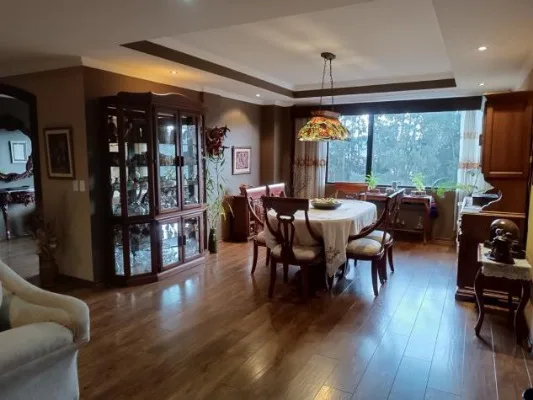Understanding the Covid-19 health emergency rules … and when will they end?
On March 16, the day Ecuador’s Covid-19 virus case count reached 58, President Lenin Moreno declared a national health emergency, or emergencia sanitaria, and imposed Latin America’s toughest social distancing rules. Since the 60-day emergency decree was issued, the number of confirmed cases in Ecuador has soared to 1,835 and could approach 2,000 when Sunday’s numbers are reported.

A shopper in a Cuenca market.
Although the intent of the restrictions is clear, many of the details are not, partly because a number of them have been revised since March 16. In the last week, the curfew has been extended for the third time, travel between provinces and cantons has been restricted again and the number of days private cars are allowed on the street has been reduced. There will almost certainly be more changes in the weeks ahead.
Here are the key rules covered under the health emergency.
- Residents are under orders to stay home except to purchase food and medical supplies; to attend medical appointments; to get to work if the work is deemed essential by the government; to visit banks for essential business, such as taking out cash; and to care for the elderly or disabled. The order is in place until April 5 but the interior ministry says the date will be extended.
- Face-to-face contact is restricted as all public and private schools and universities are ordered closed; in-store restaurant service is discontinued although restaurants are allowed to offer take-out and delivery service; all non-essential businesses are closed; and all non-essential government services are closed with employees ordered to work from home if possible. The order is in place until April 11 but is subject to extension.
- A nationwide curfew is in effect from 2 p.m. to 5 a.m. daily. Additional curfew restrictions apply in Guayas Province and in the Galapagos.
- International and national air travel has been suspended as has interprovincial bus service. Municipal bus service has been partially and completely suspended in most urban areas. These suspensions are scheduled to end April 5 but will likely be extended.
- Only one member per family is allowed to shop at supermarkets, mercados and pharmacies. Those under 18 or over 65 are not allowed to shop unless there are no others in the household between those ages. There are additional restrictions in Quito where the elderly have been defined as all those over 55. Shoppers are advised to wear masks and plastic gloves, which are requirements for entry at some stores and markets.
- Restrictions on the use of private vehicles mandate that vehicles with license plates ending in 1, 2 and 3 will be allowed to circulate only on Monday and Friday; vehicles with license plates ending in 4, 5 and 6 can circulate on Tuesday and Saturday; vehicles with license plates ending in in 7, 8 and 9 can circulate on Wednesday and Sunday; and vehicles with plates ending in 0 can circulate on Monday and Thursday. Vehicles are only allowed on the streets during non-curfew hours. On permitted days, drivers must have a legitimate reason for leaving home, such as to purchase food or medicine.
- Restrictions on highway travel allow only permitted vehicles making essential deliveries, such as food, medical supplies and fuel, to cross provincial borders, and travel between cantons is restricted to vehicles with authorized business.

Interior Minister María Paula Romo
When will the rules be relaxed? According to Interior Minister María Paula Romo, it is too early to say. “We have not yet reached the peak number of virus cases and it could be weeks after we do before we can make changes,” she says. “We all want to return to a normal life but we must overcome this terrible disease or there will be no normalcy. The emergency declaration is for a term of 60 days but this will be extended if necessary.”
Ecuador Health Minister Juan Carlos Zevallos believes that the country is on the right track. “We started earlier than most countries in imposing restrictions and even though we have seen rapid growth in the cases, our growth rate is significantly below that of other nations,” he says, adding that a lack of testing is a continuing problem.
As evidence that Ecuador’s stay-at-home order is having the desired effect, Zevallos points to the situation in the U.S. state of Florida, where similar orders have not been imposed. “At one point last week, Ecuador and Florida had the same number of confirmed cases and today Florida has more than twice the number we have. I think our rules have made a difference.”





















